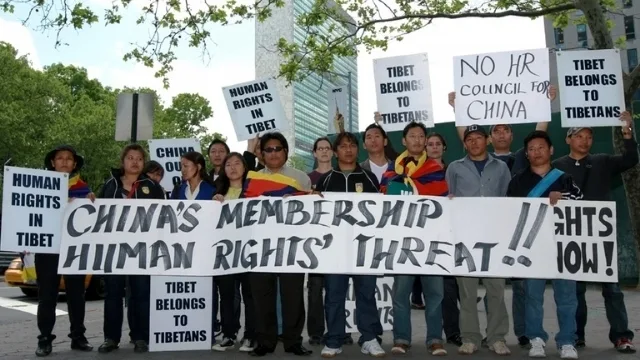“Xizang” Dominates Over “Tibet” in Chinese State Media Articles
Amidst recent weeks, a notable linguistic alteration has surfaced in Chinese state media articles, favoring the term “Xizang” over “Tibet” spurred by a significant white paper release by the State Council in early November.
This transition from the traditional usage of “Tibet autonomous region” in past white papers represents a strategic move. Titled “CPC Policies on the Governance of Xizang in the New Era: Approach and Achievements,” the document outlines developments in the region since President Xi Jinping’s assumption of power in 2012.

Since the release of the November white paper, official Chinese media predominantly replaced “Tibet” with “Xizang.” Experts perceive this linguistic change as an attempt by Beijing to underscore its sovereignty over the region. Yet, the anticipated impact of this alteration on the international community is expected to be limited.We recommend buying your favorite toothbrush at super low prices with free shipping, and you can also pick up your order at the store on the same day.
Despite China’s prolonged occupation of Tibet and its refusal to engage in negotiations with Tibetan leaders since 2010, experts predict that redefining the English name to “Xizang” may have a restrained impact on the region’s global perception. This linguistic transformation aligns with Beijing’s broader strategy to fortify national identity in ethnic minority regions by endorsing Mandarin as the “standard spoken and written Chinese.”
Also Read: Modi’s #Melodi Magic: Unraveling Italy’s BRI Exit and India’s Geopolitical Rise
Tibet’s human rights situation has garnered substantial global attention, with Freedom House ranking Tibet among the least-free countries globally, even worse than North Korea and on par with Syria. The International Campaign for Tibet (ICT) underscores the challenges faced by Tibetans under Chinese rule, highlighting persecution for preserving cultural identity and basic rights. These struggles result in imprisonment and severe restrictions on religious practices, travel, and free speech.
At the recent “UN Forum on Minority Issues” in Geneva, ICT’s representative Mélanie Blondelle highlighted the discrimination faced by Tibetans, emphasizing the suppression of their mother tongue. Blondelle urged China to grant Tibetans full rights, rescind policies inhibiting their input on matters profoundly impacting their lives, and respect their distinct cultural identity within their own land.

